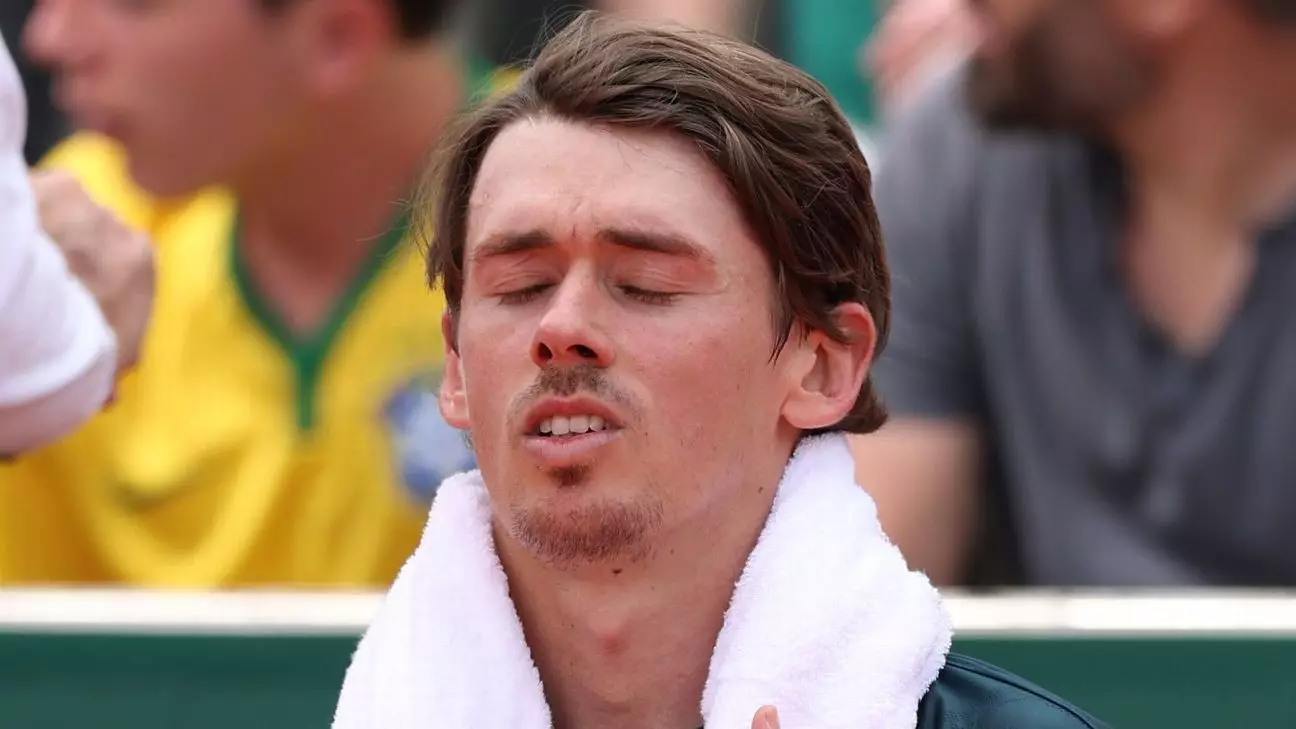In the recent spotlight of tennis, the plight of players like Alex De Minaur has underscored a growing concern about the grueling nature of the professional circuit. With De Minaur’s unexpected exit from the French Open, he vocalized a frustration that resonates with more than just two players; it echoes the silent struggles of many athletes in a system that prioritizes competition over well-being. The frenetic pace of the tennis calendar, which barely offers room for recovery or rest after intense tournaments, is a ticking time bomb for mental and physical burnout among players.
De Minaur’s passionate outcry reveals the distress among players who face a relentless schedule year after year. Starting with events such as the United Cup just a month after high-stakes tournaments like the Davis Cup, athletes find themselves in an unmanageable sprint. This call for a shorter calendar is not merely a reaction to fatigue; it is a profound plea for a shift in the priorities of sports governing bodies that often seem disconnected from the realities of human limits. If we continue on this trajectory of an unaltered tennis calendar, we risk witnessing shorter careers and diminished performances as players grapple with their mental health and physical endurance.
The Implications of Rankings and Mandatory Events
Casper Ruud’s remarks about the ATP’s ranking system being akin to a “rat race” magnify the underlying pressures that compel players to participate even when they are not at their best. The fierce competition inherent in professional sports fosters a culture where skipping mandatory tournaments—for fear of losing ranking points—is not just a professional disadvantage but a source of significant mental strain. Ruud, despite battling knee pain, felt he had no choice but to enter the fray, exemplifying the toxic environment that the current structure perpetuates.
The ATP’s policies contribute significantly to this cycle of obligation. When players face penalties such as a 25% reduction in year-end bonuses for missing mandatory events, the incentives are starkly misaligned with player health and long-term career sustainability. This pressure does not merely affect individual health; it sends a damaging message: those who prioritize their well-being might be sacrificing their competitive standing. Such a dynamic exacerbates the physical toll and mental stress players endure, ultimately jeopardizing the very fabric of the sport.
A Call for Sustainable Solutions
The conversation surrounding the need for a re-evaluation of the tennis calendar, as advocated by De Minaur and echoed by others in the sport, is not just about logistics; it’s about embracing the humanity of athletes. The relentless pursuit of excellence must be balanced with care for the individuals who embody the spirit of the game. Tennis has had its share of legendary matches and iconic players, but if the system remains unyielding, we might lose the very athletes who bring the sport to life.
Proposing a more sustainable format could invigorate the sport while preserving player health. Potential reforms might include a thorough review of the mandatory event system, encouraging flexibility rather than imposing rigid penalties. Adaptations to the tour that allow for scheduled breaks, injury recovery time, and less strenuous transitions between seasons could significantly enhance players’ mental and physical health.
The tennis community stands at a crossroads. The current structure has served its purpose, but as the discourse around player health gains momentum, it’s essential for tennis authorities to listen and adapt. This is about more than just individual matches or temporary frustrations; it’s about cultivating a healthier future for the sport, one where players can thrive without the shadow of burnout looming over them. The sport must evolve, driving toward a balance that recognizes the nuances of human resilience and the profound importance of mental well-being in achieving athletic excellence.


Leave a Reply